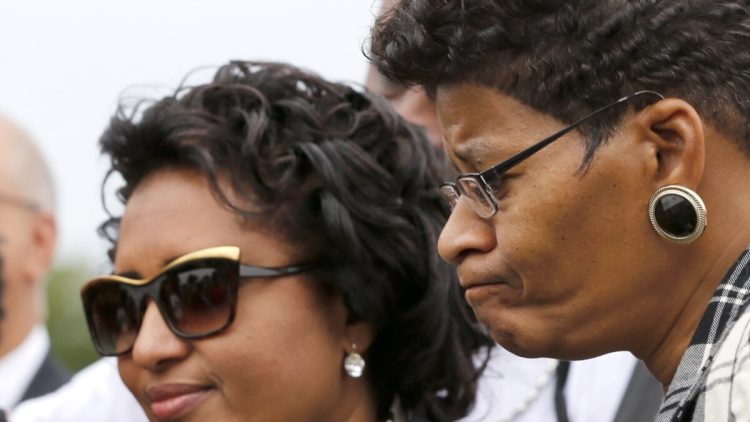: Amadou Diallo: A Tragic Tale of Injustice and Police Brutality

Amadou Diallo’s story is one that resonates with the deep-seated issues of injustice and police brutality that persist in society. Born on September 2, 1975, in Liberia, Diallo’s life was tragically cut short on February 4, 1999, in the Bronx, New York. His death became a symbol of the systemic problems within law enforcement, sparking discussions about racial profiling and excessive use of force.
Early Life:
Amadou Diallo’s early life was marked by hardship and migration. He moved to New York City in 1996 in pursuit of a better life, like many immigrants seeking the American dream. Unfortunately, what awaited him in the Bronx would be a stark contrast to the aspirations he held.
The Fateful Night:
On that fateful night of February 4, 1999, Amadou Diallo returned to his apartment after a long day’s work, unaware that his life was about to take a tragic turn. Four plainclothes police officers from the Street Crime Unit—Sean Carroll, Kenneth Boss, Edward McMellon, and Richard Murphy—approached him while looking for a rape suspect.
The officers claimed that they believed Diallo matched the suspect’s description and, feeling threatened, demanded he show his identification. Diallo, unarmed and holding only his wallet, reportedly reached for it. In a tragic misunderstanding, the officers mistook the wallet for a gun and unleashed a barrage of 41 shots, 19 of which struck Diallo.
The Aftermath:
Amadou Diallo’s death sparked outrage and protests, with many condemning the excessive use of force and racial profiling by the police. The African immigrant, who had come to the United States seeking a better life, became a symbol of the systemic issues embedded in law enforcement.
The Trial:
The trial of the four officers began on January 25, 2000, and it was a highly scrutinized case. The defense argued that the officers mistook Diallo’s wallet for a weapon, while the prosecution contended that the use of deadly force was unjustified. The trial took place in Albany, New York, after a change of venue was granted due to concerns about the ability to find an impartial jury in the Bronx.
On February 25, 2000, the four officers were acquitted of all charges, leading to widespread protests and further amplifying the calls for justice. The verdict intensified the ongoing debate about the accountability of law enforcement and the need for reforms to prevent such tragic incidents in the future.
Legacy and Impact:
Amadou Diallo’s legacy extends beyond the tragic circumstances of his death. His story became a rallying cry for advocates of police reform and those fighting against racial injustice. The incident prompted increased scrutiny of the tactics employed by the police and highlighted the urgent need for systemic changes.
In the years following Diallo’s death, his mother, Kadiatou Diallo, became an outspoken advocate for police reform and justice. She founded the Amadou Diallo Foundation, dedicated to promoting racial healing, understanding, and trust between communities and law enforcement.
Policy Changes:
Amadou Diallo’s case contributed to significant policy changes within the New York City Police Department (NYPD). The Street Crime Unit, under whose jurisdiction the officers involved operated, was disbanded in the wake of the shooting. Additionally, the NYPD implemented reforms, including improved training on the use of deadly force and the establishment of an early warning system to identify officers with problematic behavior.
National Dialogue:
Diallo’s death became a catalyst for a broader national dialogue on police brutality and the need for comprehensive reform. Activists, community leaders, and civil rights organizations seized the moment to advocate for changes in policing practices, demanding accountability, transparency, and an end to racial profiling.
Ongoing Struggles:
Despite the progress made in the aftermath of Amadou Diallo’s death, the struggle against police brutality and racial injustice persists. High-profile cases of unarmed individuals, particularly those from marginalized communities, continue to make headlines, reigniting calls for systemic change.
Conclusion:
Amadou Diallo’s life and untimely death serve as a stark reminder of the challenges faced by marginalized communities in their pursuit of justice and equality. His story prompted a national reckoning with issues of police brutality and racial profiling, leading to tangible policy changes and an ongoing conversation about the need for comprehensive reform.
As society grapples with these systemic challenges, it is crucial to remember Amadou Diallo’s name and the impact his story had on sparking a movement for justice and change. The quest for a fair and just society continues, fueled by the memory of those who have become symbols of the ongoing struggle against injustice.
1. Who was Amadou Diallo? Amadou Diallo was a young immigrant born in Liberia on September 2, 1975, who tragically lost his life in a police shooting in the Bronx, New York, on February 4, 1999. His death became a symbol of police brutality and racial injustice, sparking nationwide conversations about the need for reform in law enforcement.
2. What happened on the night of Amadou Diallo’s death? On the night of February 4, 1999, four plainclothes police officers from the Street Crime Unit approached Diallo, believing he matched the description of a rape suspect. A tragic misunderstanding ensued, leading the officers to mistake Diallo’s wallet for a weapon. In the confusion, they fired 41 shots, 19 of which struck and killed Diallo.
3. What were the charges against the police officers involved? The four officers—Sean Carroll, Kenneth Boss, Edward McMellon, and Richard Murphy—faced charges related to the shooting, including second-degree murder. However, on February 25, 2000, they were acquitted of all charges, leading to widespread protests and calls for justice.
4. How did the Amadou Diallo case impact police reform? The case prompted significant changes within the New York City Police Department (NYPD). The Street Crime Unit, under whose jurisdiction the officers operated, was disbanded, and reforms were implemented, including improved training on the use of deadly force and the establishment of an early warning system to identify problematic officers.
5. What was the public reaction to the verdict in the Amadou Diallo case? The acquittal of the four officers sparked widespread outrage and protests. People across the nation expressed their frustration with the criminal justice system, further highlighting the need for reform and accountability within law enforcement.
6. How did Amadou Diallo’s family respond to his death and the subsequent trial? Amadou Diallo’s mother, Kadiatou Diallo, became an outspoken advocate for police reform and justice. She founded the Amadou Diallo Foundation, dedicated to promoting racial healing, understanding, and trust between communities and law enforcement.
7. What impact did Amadou Diallo’s case have on the national conversation about police brutality? The case became a catalyst for a broader national dialogue on police brutality and the need for comprehensive reform. It elevated discussions about racial profiling, excessive use of force, and systemic issues within law enforcement, leading to increased awareness and advocacy for change.
8. Are there ongoing efforts to address police brutality and racial injustice in the aftermath of Amadou Diallo’s case? Yes, the struggle against police brutality and racial injustice persists. The case of Amadou Diallo continues to serve as a reminder of the challenges faced by marginalized communities, fueling ongoing efforts for systemic change, increased accountability, and transparency in law enforcement practices.





